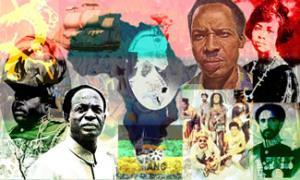
Pan-Africanism has been a movement against imperialism in all its forms and for the liberation of Black Africans from the evils of Black enslavement, colonialism, and from racism these produced. Neo-Liberalism which is a contemporary form of imperialism has made the South African elite behave like its masters of the Apartheid era, by not providing a better life after 1994 to the majority.
Events of recent weeks in South Africa have left me perplex at the inadmissible attitude of some citizens of the country of ZUMA towards their fellow Africans.
Being ashamed of such inhuman behavior should not be enough. Recently I had a conversation with a fellow African on issues that our people face. Having done a well argued discussion of the nature of the problem, there seems however a sense of powerlessness to address it.
I stressed that whatever our respective contexts or personal circumstances, there is always something we can do to redress or alleviate problems we observe around us and even beyond that are affecting our fellow humans.
Back in 2013 I remember a case of Congolese students who had been mistreated by Indian police and wrongly incarcerated following an incident with locals. We (Africans in different places) campaigned for their release. We asked fellow Africans everywhere to boycott Indian products. The students in India were later on released with apologies from the officials.
Back to the situation of Afrophobia in South Africa, I couldn’t think of any practical action Africans could undertake to show to the Zuma government that African lives matter. Fortunately I came across this call from Momi M’buze asking Africans to boycott South African products: mobiles, agricultural commodities, wine and others.
Momi M’buze explains the motive of such call:
“We don’t have any hatred against our South African brothers and sisters, because we cannot generalize actions of the few among them. However, against the violent death of many of our people, victims of fire and beatings on the head using metal, rocks or briques, we cannot remain pacifists.”
At my local TESCO in London I regularly buy grapes from South Africa. These days I don’t drink wine but I used to buy some produced by the rainbow country. If we all take action and boycott their products for a period not too long – the necessary time for realising the weight of the crime committed – to let them understand that what they let happen in their country to our African families cannot be silently tolerated.
Apartheid was eradicated among other things by the solidarity of Africans and friends of the continent around the world. That international solidarity forced the white and racist regime to change its political course and give same human rights to the black African population in the country as those provided to the white. Economic boycott of its products was one of the many tactics employed.
Until these events of Afrophobic character occur, it was unthinkable that quarantining South African products could be again of any use. But racism is racism whoever applies it to its victims, whatever their respective colors (#BoycottSouthAfricaProducts).
The South African economy has not been doing quite well of recently. If this social crisis is not handled properly and rapidly, it could be another strong and sharp nail in the coffin.
